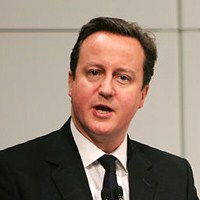On Jan. 31, British Prime Minister David Cameron hosted French President Francois Hollande for the third bilateral summit since the signature of the Lancaster House treaties on bilateral defense and security cooperation in November 2010. Although the two leaders have met on several occasions, this was the first official summit since Hollande’s election in May 2012.
The year that followed the French presidential election was qualified by a senior British official as a “long strategic pause,” marked by uncertainty over what Hollande’s defense policy would look like as well as delays over both nominations of senior French defense officials and France’s White Paper on Defense and National Security, eventually released in April 2013. Tough budgetary discussions in the U.K. Ministry of Defense also contributed to concerns on the British side that the Franco-British process would be sidetracked. The few months leading up to the December 2013 European Council meeting on defense, the first of its kind since 2008, did not go very smoothly either, with London pushing, unsuccessfully in the end, for the bilateral France-U.K. summit to take place beforehand.
That the summit took place on the Royal Air Force base of Brize Norton was of symbolic significance, as it is from there that British military transport planes flew to support the French interventions in Mali and the Central African Republic (CAR). A number of key announcements were made, including a statement of intent for a combat drone project known as the future combat air system (FCAS) and the launch of a two-year feasibility phase; a memorandum of understanding confirming joint orders for future helicopter-launched, anti-surface guided weapons for the countries’ navies; and a $16 million contract for the development of underwater vehicles capable of finding and neutralizing seabed mines.

